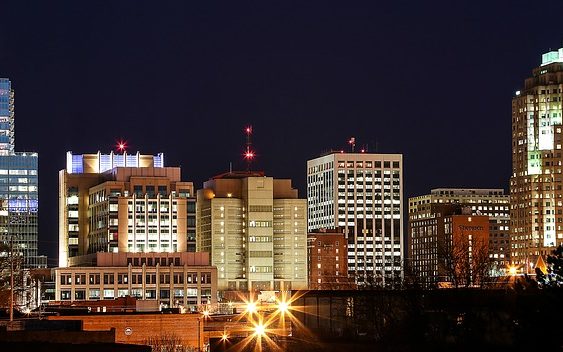- Couple accused of creating videos of young girls using hidden cameras at The Woodlands Mall, Hurricane Harbor
- Couple accused of creating videos with hidden cameras at The Woodlands Mall, Hurricane Harbor
- The Texanist: Texas Gets More Tornadoes Than Any Other State, but Don’t Freak Out
- U.S. Supreme Court says Texans can sue state for flood damage
- This is how many hurricanes NC State researchers predict this year
Tornadoes, ticks and terrorism: What makes North Carolinians feel unsafe?

Are we safe? Help us find out in our new year-long project
News & Observer and Herald-Sun reporters will launch a project called Are We Safe? It will look at worries, risk, safety of North Carolina residents and holding leaders and laws accountable for keeping our communities safe.
News & Observer and Herald-Sun reporters will launch a project called Are We Safe? It will look at worries, risk, safety of North Carolina residents and holding leaders and laws accountable for keeping our communities safe.
What keeps North Carolinians up at night?
In a new poll conducted by Elon University, 1,500 people around the state were asked about their fears and concerns for themselves and their families. The poll was created in partnership with The News & Observer and The Herald-Sun as part of the news organizations’ new year-long series, “Are We Safe?”
Participants were given a list of issues and asked: “How safe or unsafe do you feel when you think about your own risk from each of the following?”
Women reported feeling more unsafe than men did in every one of the 37 categories in the poll – except for fear of “workplace accidents” in which 11% of women and 9% of men felt unsafe.
Those with household incomes less than $50,000 a year were more likely to feel “very unsafe” in every category. Respondents between the ages of 18 to 29 were more likely to feel very unsafe compared to their older counterparts.
Black respondents felt more unsafe than than white respondents in every category except for healthcare costs.
More Democrats than Republicans felt very unsafe in every category except for driving. Both party affiliations felt equal amounts of “very unsafe” about driving.
The poll was conducted March 30-April 1. (Full results are at the end of this article.)
Here are other top results:
Health and healthcare
More than half of North Carolinians (55%) feel unsafe about healthcare costs.
But respondents said they felt more positive about their own health, with more than half saying they feel safe (58%), and 19% feeling unsafe. However, 53% say that contagious diseases like the flu or measles make them feel unsafe.
Crime
About a third of respondents felt unsafe at home or in their neighborhoods, and half said they felt somewhat or very safe. The remainder were neutral: 18% said they felt neither safe nor unsafe.
North Carolinians, however, don’t feel quite as safe about crime at their work or school: More than a third said they felt unsafe there. About 42% said they felt somewhat or very safe; 24% were neutral.
Shootings in public places and terrorism were most concerning to respondents, with 60% feeling personally unsafe about shootings and 55% personally fearing terrorism.
More than 50% of respondents between the ages of 18 and 29 said they felt very unsafe about shootings in public places.
Nature
When it comes to nature, four things make more than half of the North Carolinian respondents fear for their personal safety: tornadoes, hurricanes, snakes and ticks.
| TOPIC | UNSAFE |
| Tornadoes | 51% |
| Hurricanes | 53% |
| Snakes | 56% |
| Ticks | 57% |
They are less concerned about sharks, with 39% feeling unsafe and nearly half (47%) feeling personally safe. When it comes to spiders, 40% feel unsafe, 35% reported feeling safe, with 25% neutral. Dogs only make 16% of respondents feel unsafe. Sixty-two percent said they felt safe around dogs.
Less than half of those polled (42%) feel unsafe because of climate change.
Infrastructure
Two-thirds of respondents reported feeling unsafe walking along roads without sidewalks.
Cranes dotting Raleigh and Durham skylines are common, with several tall buildings under construction. Respondents said they aren’t too concerned about tall buildings: Only 16% said they feel unsafe in tall buildings, and 60% feel somewhat or very safe.
However, 48% felt unsafe about fires inside buildings.
As far as the risk of contamination in the food supply, 53% reported feeling personally unsafe. And 49% of those polled said they felt unsafe about contaminated water.
Work and transportation
Of those polled, 28 percent felt unsafe about workplace accidents.
When asked about unemployment fears, the respondents’ answers were about evenly split: 36% said they felt unsafe and 33% noted that unemployment didn’t worry them. A quarter of respondents said they felt personally unsafe on an airplane, 52 percent said they felt safe, and 23 percent were neutral.
About the poll:
The Elon University Poll used 24 online sample providers to reach about 1,500 North Carolina adults. They were contacted between March 30 and April 1. Percentages of respondents in demographic groups like age and gender are consistent with percentages of North Carolina residents in those groups according to the U.S. Census and other official sources, per poll officials.
The online opt-in survey doesn’t have a traditional margin of error, but has a credibility interval of plus or minus 2.7%.
Respondents were 66% white (non-Hispanic) and 70% of their education level was less than a bachelor’s degree. The gender and ages of respondents were relatively even with 34% or respondents ages 45 to 64 and 52% female.